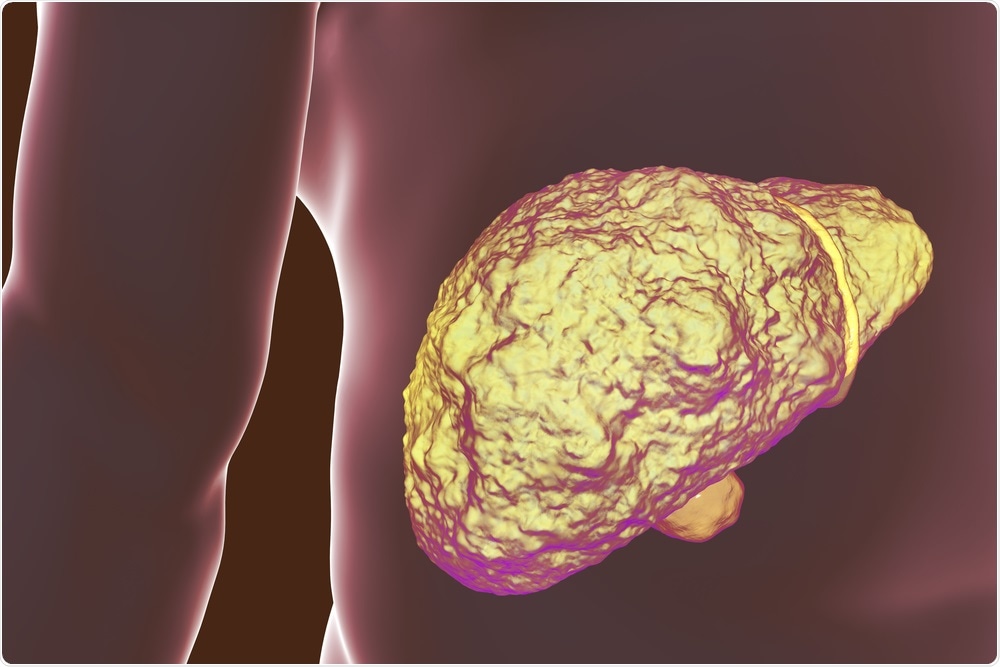Why Wine is Damaging Our Body More Than We Thought
A leisurely glass of red wine with a good meal never hurt anyone – or did it? Many ‘experts’ point out that wine is not always harmful, and in fact, a little of it every day can help your stomach and ward off many illnesses, as the Good Book says.

Image Credit: TnkImages/Shutterstock.com
Nonetheless, many public health organizations feel and espouse the necessity of banning red wine altogether, along with other alcoholic drinks. Alcohol is present in wine. This simple statement is enough to explain how wine harms the human body.
Is Alcohol Good for Health?
Why do so many studies say low doses of wine are beneficial to health? Researchers say these conclusions come from flawed methods of study, failing to consider differences in nutrition, lifestyle, and social factors.
Alcohol affects human health in many ways, such as the accumulation of toxins that adversely affect the body’s organs and tissues; the occurrence of acute intoxication or drunkenness that causes injuries or poisoning; and alcohol abuse disorders which can cause social, intellectual and physical impairments, as well as self-harm and violent behavior towards others.
Problems with Binge Drinking
Binge drinking, which refers to drinking excessively on a single occasion rather than constant heavy drinking, can cause short-term side effects like:
- Dizziness
- Poor judgment and coordination
- Memory loss
- Vomiting
- Hangovers
- Slowing of reflexes
- Accidental injury
- Road accidents
- Self-harm
- Violence
- Potentially lethal alcohol poisoning.
Does Alcohol Cause Cancer?
A specialist working group from the World Health Organization (WHO) summed up its review of exposure data and cancer incidence in both humans and animals, and also mechanistic studies, with the conclusion that alcoholic drinks cause human cancer.
Wine increases the risk of cancer especially of the breast, with moderate amounts of alcohol, to a level like that of smoking 10 cigarettes a week.
The researchers in one study found that drinking a bottle of wine a week was associated with a cancer risk of 1% and 1.4% in men and women respectively. This rise was the same that would be caused by smoking 10 cigarettes a week, in women, or 5 a week, for men.
The absolute risk of breast cancer associated with this level of drinking is 0.8% in women who do not smoke.
In other words, breast cancer accounts for over half of the additional cancer risk in women who drink moderately but do not smoke. In men, however, the additional cancer risk is due to tumors of the mouth, throat, esophagus, bowel, and liver.
At higher levels of drinking, such as 3 bottles of wine a week, the absolute risk of cancer over a lifetime is almost doubled for men, to 1.9%, but closer to 2.5 times for women at 3.6%, of which 2.4% is driven by breast cancer alone.
One researcher estimated that at current levels of female alcohol consumption (one bottle a week) in the UK, including social drinking, approximately 339,000 extra cancers could result.
Smoking is a cocarcinogen that increases the cancer-inducing properties of alcohol especially for cancers of the upper airway and digestive tract.
How does wine cause cancer?
Both the ethanol and the acetaldehyde in alcoholic drinks may cause human cancer.
The relationship with cancer is dose-dependent, in that the more drinks are taken per week, the higher are the odds of cancer in all these areas. Importantly, there is no lower limit below which drinking is risk-free.
Alcohol contains ethanol, which is metabolized to acetaldehyde and reactive oxygen species. Both produce cancer by binding to DNA and thus promoting the formation of DNA adducts. These are thus genotoxic.
Acetaldehyde is not only formed from alcohol but is found in wine and other alcoholic drinks. Thus, it can cause local tumors, especially of the upper airway and gut.
Alcohol also irritates the mucosa of the mouth, makes it more permeable to carcinogens like tobacco and so promotes cancer formation, and enhances the chances of inflammation of the liver, causing hepatitis and cirrhosis with subsequent liver cancer.
The metabolism of ethanol depends on the activity of two enzymes, alcohol dehydrogenase, and aldehyde dehydrogenase.
The first converts ethanol to acetaldehyde while the second converts acetaldehyde to acetate, which is less toxic.
Gene variants that cause reduced activity may increase the risk of cancer with wine consumption.
Alcohol also inhibits folate by competitive inhibition, leading to higher rates of colorectal cancer. Finally, it causes the blood levels of sex hormones to rise, causing breast cancer.
Alcohol Causes Cirrhosis
With the consumption of wine, just like any other alcoholic beverage, the alcohol grabs the spotlight from every other macronutrient in the queue.
Since the body cannot store alcohol, it must metabolize it at once. When large amounts of ethanol hit the liver, it damages the liver cells.

Image Credit: Kateryna Kon/Shutterstock.com
This is because the liver typically oxidizes alcohol through a series of steps to form water and carbon dioxide. When there is too much alcohol, the intermediate molecules inhibit the normal breakdown of fat in the liver. This causes a build-up of fatty compounds in the liver, causing fatty liver or early alcoholic liver disease.
Fatty liver occurs in 90% of people who drink more than 45-60 ounces of alcohol a day. As drinking continues, the liver cells die, are replaced by scar tissue, which extends to destroy the liver architecture.
This transformation of a healthy liver to nonfunctional disorganized fibrous tissue is called alcoholic cirrhosis of the liver. Unlike fatty liver, which is reversible in 4-6 weeks of complete abstinence, cirrhosis is a permanent change.
What Other Complications Could Wine Cause?
Alcohol abuse causes bacterial overgrowth in the gut, promoting bacterial migration through the intestinal walls. If this sepsis reaches the liver, liver damage occurs.
Alcohol also causes cardiomyopathy, damage to the heart muscle, and induce arrhythmias, or irregularities of the heartbeat. It can increase blood pressure and increase the risk of heart attacks.
Pancreatitis is another complication of drinking. Regular drinking also weakens the immune system and increases the body’s vulnerability to infections.
Heavy drinking can cause loss of concentration, judgment, and memory, boost the chances of a stroke and dementia. It can also cause lower testosterone levels, reduce the sperm count, and reduce the fertility levels.
Do not drink for health
Alcohol use was the seventh leading cause of death globally, and the number 1 cause of death in the age group 15-49 years, according to a Global Burden of Disease study (2016).
For individuals above 50 years, 19% and 27% of deaths attributable to alcohol were caused by cancer.
Importantly, the study concluded by saying, “The level of alcohol consumption that minimized harm across health outcomes was zero standard drinks per week.”
The researchers noted that this put their findings “in conflict with most health guidelines, which espouse health benefits associated with consuming up to two drinks per day.”
However, the WHO international expert committee on the prevention of cardiovascular disease categorically stated in 2007 that “there is no merit in promoting alcohol consumption as a preventive strategy.”
References and Further Reading
- Hydes, T. J., Burton, R., Inskip, H., Bellis, M. A., and Sheron, N. (2019). A Comparison of Gender-Linked Population Cancer Risks Between Alcohol and Tobacco: How Many Cigarettes Are There in A Bottle of Wine? BMC Public Health 19, 316. https://doi.org/10.1186/s12889-019-6576-9. https://bmcpublichealth.biomedcentral.com/articles/10.1186/s12889-019-6576-9
- GBD 2016 Alcohol Collaborators (2018). Alcohol use and burden for 195 countries and territories, 1990–2016: a systematic analysis for the Global Burden of Disease Study 2016. The Lancet, Volume 392, ISSUE 10152, P1015-1035, September 22, 2018. https://doi.org/10.1016/S0140-6736(18)31310-2. https://www.thelancet.com/journals/lancet/article/PIIS0140-6736(18)31310-2/fulltext
- Latino-Martel, P., Arwidson, P., Ancellin, R., et al. (2011). Alcohol Consumption and Cancer Risk: Revisiting Guidelines For Sensible Drinking. CMAJ November 08, 2011 183 (16) 1861-1865; DOI: https://doi.org/10.1503/cmaj.110363. https://www.cmaj.ca/content/183/16/1861
- Clevelandclinic.org. (2020). 6 Surprising Ways Alcohol Affects Your Health — Not Just Your Liver. Available at: https://health.clevelandclinic.org/6-surprising-ways-alcohol-affects-health-not-just-liver/. Accessed on 24 April 2020.
- Healthdirect.gov. au. (2020). How alcohol affects your health. Available at: https://www.healthdirect.gov.au/how-alcohol-affects-your-health. Accessed on 24 April 2020
- Lago, L. O., and Welke, J. E. (2019). Carbonyl compounds in wine: factors related to presence and toxic effects. Ciencia Rural vol.49 no.8 Santa Maria. https://doi.org/10.1590/0103-8478cr20190349. http://www.scielo.br/scielo.php?pid=S0103-84782019000800751&script=sci_arttext
Further Reading
- All Alcohol Content
- What causes a hangover?
- Health Risks of Binge Drinking
- Tremors Following Alcohol Dependency
- Health Risks of Alcohol Misuse
Last Updated: May 22, 2020

Written by
Dr. Liji Thomas
Dr. Liji Thomas is an OB-GYN, who graduated from the Government Medical College, University of Calicut, Kerala, in 2001. Liji practiced as a full-time consultant in obstetrics/gynecology in a private hospital for a few years following her graduation. She has counseled hundreds of patients facing issues from pregnancy-related problems and infertility, and has been in charge of over 2,000 deliveries, striving always to achieve a normal delivery rather than operative.
Source: Read Full Article